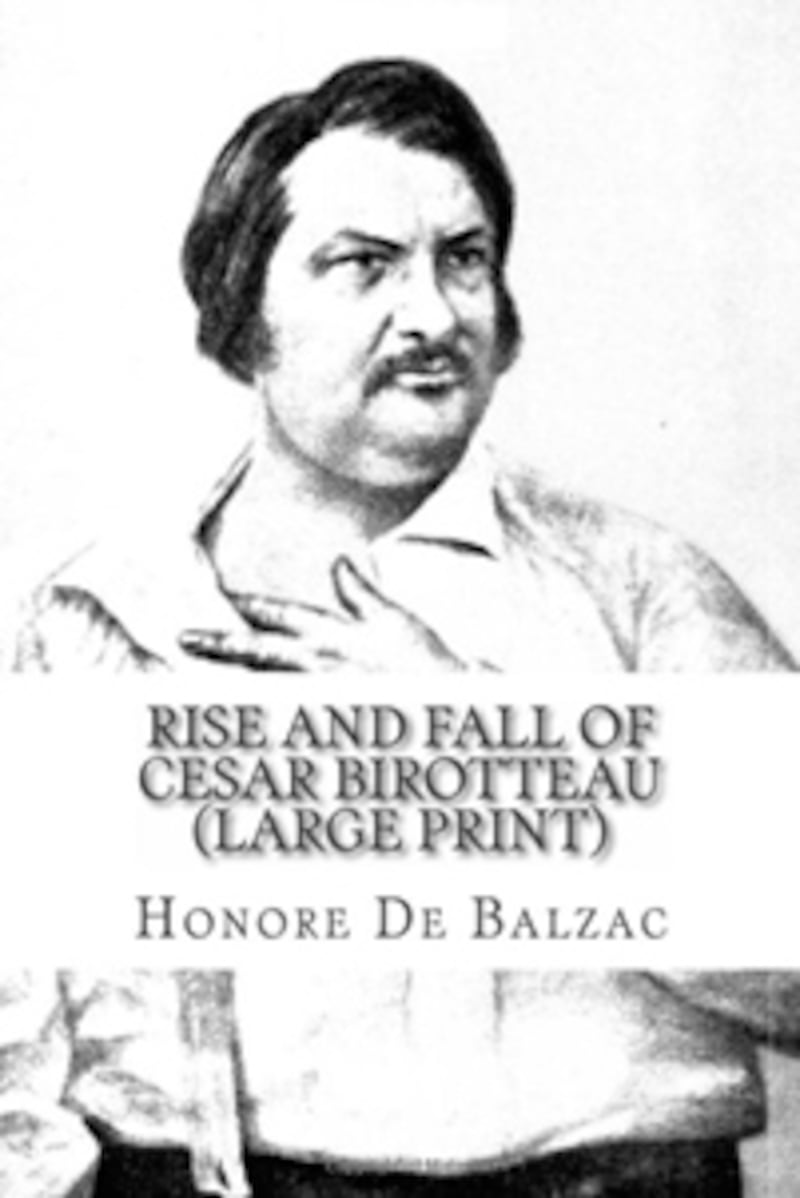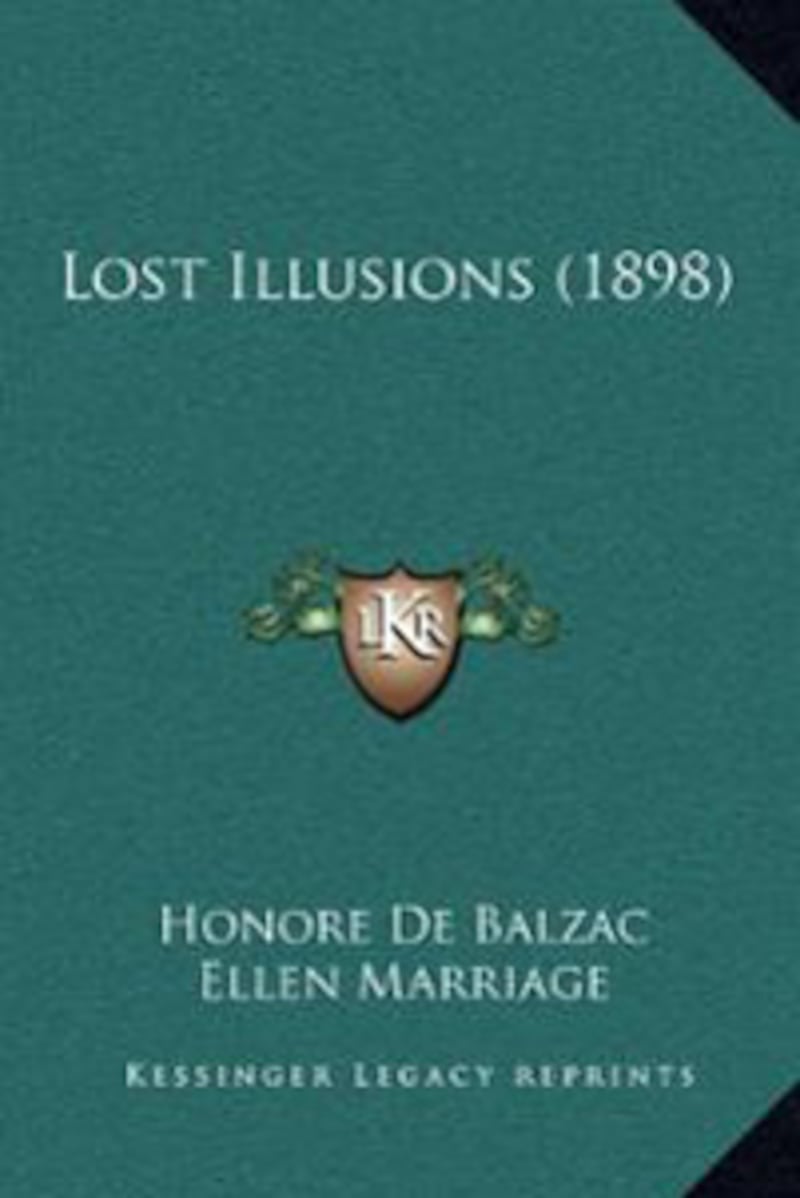You grow used to seeing evil done, to letting it go; you begin by not minding, you end by doing it yourself. In the end, your soul, spotted daily by shameful transactions always going on, shrinks, the spring of noble thoughts rusts, the hinges of small talk wear loose and swing unaided.
These words come not—as one might assume—from the memoir of a burned-out case exhausted by a few years of toil at a mean-spirited website or a scandal-plagued hedge fund. They are spoken by a cynical journalist, a recurring character in Honoré de Balzac’s The Human Comedy, his immense, multivolume fictional chronicle of French society during the post-Napoleonic era.

Though Balzac, who was born on this day in 1799, died at age 51, his Human Comedy of interlinked novels, stories, and essays contains over 90 works, at least a dozen of which can be counted as masterpieces. So any list of the “essential” Balzac inevitably omits a handful of great works. That said, I’ll point to three volumes that seem to speak most directly to the current historical moment.
The only problem, of course, is that so many of Balzac’s novels speak to the current moment. Balzac was the great novelist of money, social climbing, and power. He depicted an era filled with booms and busts, great wealth and heartbreaking poverty. It was also a time when new media was exploding—which in this case meant the rise of tabloid journalism. Balzac’s great gift was his ability to seemingly hold all of society in his head and fearlessly travel from low life to high life in the course of a few pages, all with a ferocity and conviction—and an aphoristic gift—that any writer of fiction would envy.
Rise and Fall of César Birotteau

I’ll begin with Rise and Fall of César Birotteau, the least known of the novels I’ve chosen. This is Balzac’s uncannily prescient account of the bitter lessons learned by an ordinary bourgeois merchant who, emboldened by his initial success, plunges into speculative investments—and is ruined thanks to the machinations of sophisticated financial rogues and his own reckless passion for remodeling his home. Sound familiar?
“César Birotteau,” Balzac writes, “who should have looked upon himself as having reached the apogee of his career, mistook the summit for the starting-point.” Describing the elaborate planning that goes into Birotteau’s housewarming party, Balzac observes, “Nothing can be done simply when people aspire to rise from one social rank to another.” Notice that Balzac—who at times is a delightfully heavy-handed writer—never shies away from explicitly stating his case. “Weak natures, like Birotteau,” he explains, “take their sorrows into their lives instead of transmuting them into the axioms of experience; and, steeping themselves in their troubles, wear themselves out by reverting daily to the old unhappiness.”

Balzac’s best-known novel is Père Goriot, usually translated as Father Goriot—and there’s good reason for its fame: it’s a masterpiece. Here we meet a prototypical Balzac character: the gifted, flawed, striving provincial Eugène de Rastignac. Like Balzac before him, Rastignac is nominally in Paris to study, but he’s also there to taste—and ultimately conquer—the great world. Balzac writes, “Like all great minds, Eugène wished to owe his success to nothing but his own merit.” Ambition, however, quickly trumps integrity, as Rastignac uses whatever it takes to succeed: his good looks, his increasingly sophisticated fashion sense, his social connections, his gift for seduction, and his ruthlessness.
In the celebrated opening pages of Goriot, Balzac describes the workings of the shabby Latin Quarter boardinghouse where Rastignac’s fellow tenants include Goriot, an inverted Lear figure whose generosity toward his daughters is his undoing. Also present is Vautrin, a Godfather-like criminal and escaped felon with a homoerotic interest in Rastignac. Before long, Rastignac is charming women in fashionable salons, where he commences relations with Goriot’s daughter, who happens to be the wife of the most powerful banker in Paris. This is territory most often visited today by authors of bestselling fluff about sex in high places. Yet Père Goriot is written with great force and high seriousness and filled with sentences like this: “We find it as difficult to forgive a person for displaying his feeling in all its nakedness as we do to forgive a man for being penniless.”

Finally, there’s Lost Illusions, another tale of innocence lost or innocence corrupted, the story of the rise and fall of another striver who quickly rises and falls. The striver in this case is Lucien Chardon, a physically beautiful young man who arrives in Paris with literary ambitions. He is soon humiliated when he shows up at the opera wearing the wrong suit. “At the sight of a man whose borrowed elegance made him look like the best man at a wedding,” Balzac writes, “the attendant demanded to see his ticket.” Ouch.
In a series of desperate efforts to hustle a living and make a name for himself in the big city, Lucien commits an impressively appalling series of betrayals of lovers, family members, and old friends. And while Lucien longs to produce literary masterpieces, he succumbs to the temptation of easy money and quick fame by writing for the popular press—a move that, for Balzac, is close to an unforgivable sin. In a typical passage, Balzac writes, “A newspaper will serve up its father raw with no other seasoning than its jokes, rather than fail to interest or amuse its public.” Balzac is equally cutting in his descriptions of financiers: “the most eccentric types are found among men given over to the pursuit of money. They are, in a sense, libertines in the realm of thought.” As I said, Balzac wrote about an epoch that is curiously like our own.
So, happy birthday, Monsieur Balzac. You are truly one of us.






